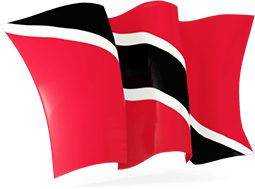
Code of Ethical Political Conduct

MEDIA RELEASE - June 1st, 2023
MONITORING OF POLITICAL CONDUCT IN THE LOCAL GOVERNMENT ELECTION CAMPAIGN
In accordance with the existing laws, the Trinidad Local Government elections are to be called before August 18, 2023. Notwithstanding that political parties and prospective candidates have not yet formally launched their campaigns, it is clear that the campaign has started. The start of any election campaign triggers the monitoring function of the Council for Responsible Political Behaviour. It is against this backdrop that the Council for Responsible Political Behaviour will immediately begin its monitoring activities to evaluate all political parties, candidates and their supporters in adherence to the Code of Ethical Political Conduct.
The Code of Ethical Political Conduct was developed in 2014 by civil society in Trinidad and Tobago. The Code was subsequently endorsed by ALL political parties contesting the 2015 General Elections. Since the 2015 elections, several other political parties have come forward seeking to endorse the Code, with the latest endorsements coming from all the parties that contested the 2021 Tobago House of Assembly Elections.
The stated objectives of the Code are to foster democracy, respect human rights, and encourage participation in elections which are free from violence. It contains five (5) sections namely ‘Commitment,’ ‘Prohibited conduct,’ ‘The Media,’ ‘The Campaign,’ and ‘the Council for Responsible Political Behaviour.’ The entire Code can be viewed on the Council’s website www.politicalethicstt.org.
For the purposes of monitoring, the Council will focus primarily on the sections on Commitments and Prohibited Conduct. The Commitment section challenges all persons engaging in the election campaign to, among other things, commit to:
-
Maintaining the highest moral principles and ethical standards with respect to their conduct;
-
Promoting and enforcing respect, tolerance, harmony and peace among their supporters and the general public;
-
Refraining from practices that promote divisiveness in the Society and committing to the removal of any structures (behavioural, cultural, social or organizational) which reinforce divisiveness;
-
Confining their criticism of other Political Parties to policies and programmes, past record and work;
-
Upholding the integrity of the electoral process;
-
Ensuring that their conduct is above reproach.
Turning to the Prohibited Conduct section, political parties and candidates agree, among other things, to the following:
-
Not make false or defamatory allegations in print or speech in connection with an election in respect of any party, its candidates, representatives or members
-
Not seek to assassinate the character of or make defamatory comments about any individual, family, professional group or section of the community.
-
Not abuse a position of power, privilege, or influence, including parental, patriarchal, traditional or employment authority to influence the conduct or outcome of an election.
-
Not permit the use and abuse of State resources for political campaigns.
-
Not indulge in negative campaigning or advertising or any action which would bring the political process into disrepute.
-
Not criticize aspects of the private lives of candidates, their families, not connected with the public activities of the leaders or candidates of other parties.
-
Not issue advertisements or other marketing material the cost of which is borne out of public funds.
Notwithstanding the vast amount of media reporting that will be available, the Council is still urging the citizenry at large to bring to its attention any violations of the Code that it may detect during the campaign. Reports of possible violations can be emailed to the Council at info@politicalethicstt.org.
Respectfully submitted on behalf of the Council,
Dr. Bishnu Ragoonath
Chairman
